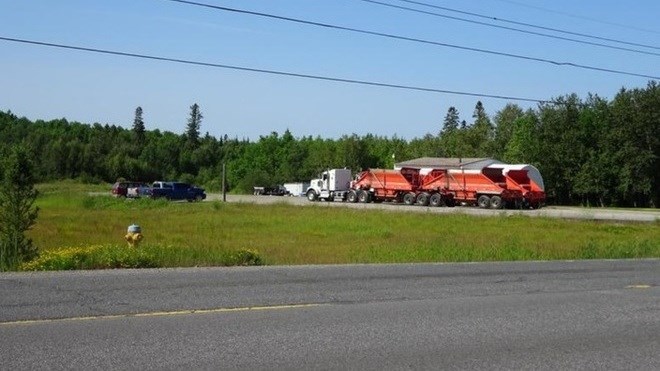Overruling a staff recommendation, the planning committee Monday voted to allow a contractor in Chelmsford to keep his contractor's yard, even though it's in an area that prohibits such uses.
The decision means Wayne MacLean can keep his business on Highway 144 and his 12 employees won't lose their jobs. He currently transports ore along the highway, and the business has grown in recent years.
The problem was the yard is located on land zoned rural. Under the city's main planning guide, the Official Plan, those types of businesses must be located in industrial and commercial areas.
While some industrial uses are allowed, they should be the types of businesses that support agriculture and other uses permitted on rural land.
Senior planner Glenn Ferguson said staff was concerned that allowing the yard would create land use conflicts in the area.
“There's no rationale for allowing an Official Plan amendment in this case,” Ferguson said.
The case came to planning committee after MacLean was convicted of violating the land use bylaw and was told to get an official amendment if he wanted to keep the business going.
But Ward 6 Coun. René Lapierre said he was told there were 12 other businesses within a four-kilometre radius of MacLean's business.
“How is it the 12 other businesses fit that description, but this one doesn't?” Lapierre asked.
“There are a variety ways that these businesses could be there," said Eric Taylor, the city's manager of development approvals.
Taylor said some of the businesses, such as an auto repair shop and a motel, were allowed under the former Region of Sudbury, which allowed businesses that cater to travelling public along the highway, wWhile others have been there since before there was zoning bylaws, and were grandfathered in.
Diane Violette, MacLean's lawyer, argued that the 10-acre property, which has a drainage easement from the city running diagonally through it, isn't suitable for farming. MacLean bought the land in 2007 because it was a perfect location for his new business.
“He bought this property with the understanding it complied with all the zoning requirements,” Violette said.
That was because his lawyer at the time didn't do due diligence and he has operated for eight years before bylaw enforcement arrived.
“He bought the property because it was ideal for his business,” she said. “Given the nature of the area, especially with all the business in the four-kilometre area, this business does not and would not have an adverse effect on the properties in the area.
“He has 12 jobs on the line with the application. It's important the operation is not disrupted … The economic benefit, just in job creation, is positive for the community, not a negative.”
In the end, the committee voted to let MacLean keep his business, but he'll have to file a site plan agreement and conform to other conditions.
